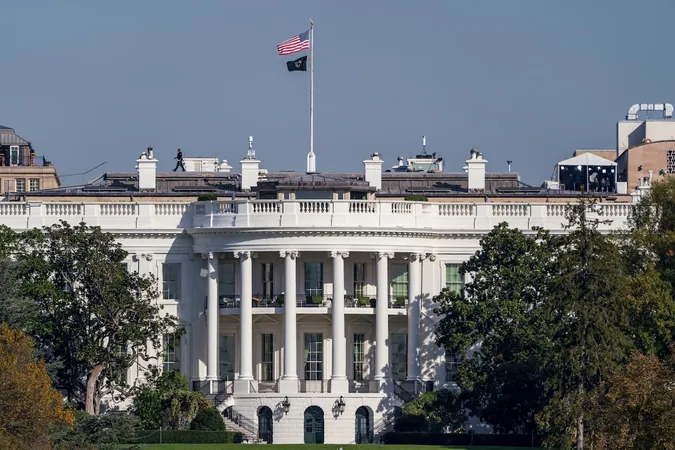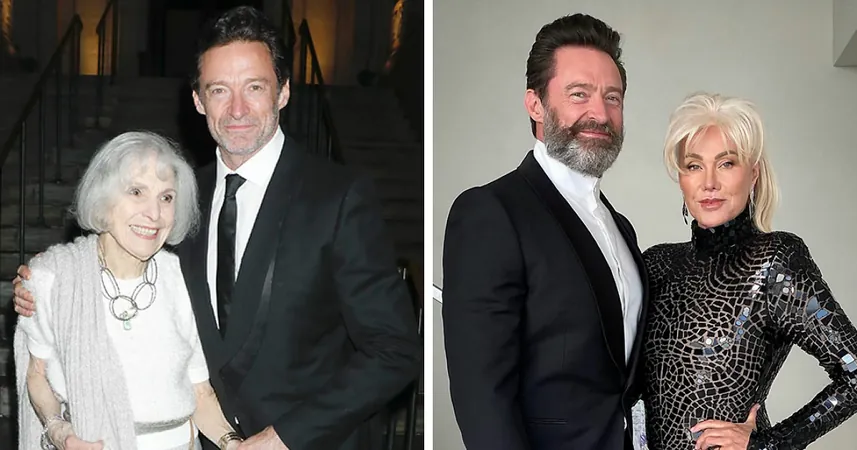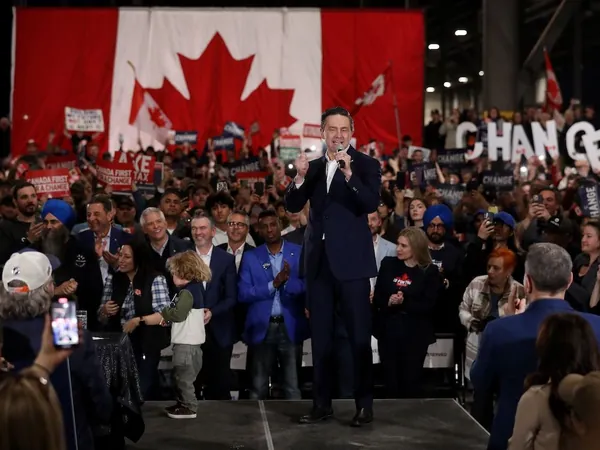
Trump’s Incoming Team Probes NSC Staff on Loyalty as Concerns Grow Over Expertise Loss
2025-01-13
Author: William
Introduction
As the Trump administration prepares for its new term, incoming senior officials have begun conducting loyalty assessments among career civil servants at the National Security Council (NSC). These inquiries include questions about voting preferences in the 2024 election, political contributions, and even past social media activities that could be deemed problematic by Donald Trump’s incoming team. A U.S. official familiar with the situation revealed that many civil servants have started packing their belongings following the inquiries regarding their loyalty to Trump, despite earlier reassurances about their positions in the new administration.
Trump's National Security Adviser Pick
The ambitious plans of Trump’s national security adviser pick, Rep. Mike Waltz from Florida, signal a significant overhaul of the NSC. Waltz has expressed his desire to replace all non-political appointees and career intelligence experts with personnel aligned with Trump’s agenda—an intention that could lead to a drastic personnel reshuffle by Inauguration Day. This shift raises alarm about the potential loss of vital expertise and institutional knowledge at a time when the U.S. faces pressing international challenges, notably in regions like Ukraine and the Middle East.
Advocacy for NSC Expertise
Jake Sullivan, the current national security adviser, is advocating for the retention of career government employees within the NSC during the transition. He emphasized that maintaining a knowledgeable team ready to operate effectively “at 12:01, 12:02, 12:03 p.m. on the 20th” is crucial, given the complex geopolitical landscape.
Concerns Over Capability and Experience Loss
Most of those questioned about their loyalty are subject matter experts temporarily assigned to the NSC from agencies such as the State Department, FBI, and CIA, which typically involves a tenure of one to two years. If let go, these professionals would return to their respective agencies, leading to fears about the disbanding of a capable team during critical times.
Timeline of Loyalty Questioning
Reports indicate that the questioning of the civil servants began in the previous week, with personnel being probed about their political affiliations by Trump appointees who had previously encouraged them to stay on. A significant number of civil servants anticipated continued employment at the NSC under the new administration.
Waltz's Statements on Overhaul
Waltz, in a recent interview, maintained that an overhaul was necessary, stating, “Everybody is going to resign at 12:01 on January 20.” He stressed the importance of having a team completely aligned with Trump’s vision.
Historical Context and Whistleblowing Concerns
This development is reminiscent of past tensions when career officials voiced concerns about the administration's conduct. During Trump’s first term, the disclosure of a controversial phone call with the Ukrainian president prompted whistleblowers, Alexander and Eugene Vindman, to raise alarms—actions which eventually led to Trump’s first impeachment. The chilling effect of the current loyalty inquiries may echo those past events, with experts suggesting that talented professionals may self-censor or choose not to serve, fearing repercussions for expressing independent views.
Implications for National Security
As the transition unfolds, scrutiny intensifies over whether the incoming administration will uphold the tradition of retaining skilled experts across the political spectrum or create an environment that prioritizes loyalty over expertise—an issue that could have serious implications for national security and foreign policy initiatives moving forward.









 Brasil (PT)
Brasil (PT)
 Canada (EN)
Canada (EN)
 Chile (ES)
Chile (ES)
 Česko (CS)
Česko (CS)
 대한민국 (KO)
대한민국 (KO)
 España (ES)
España (ES)
 France (FR)
France (FR)
 Hong Kong (EN)
Hong Kong (EN)
 Italia (IT)
Italia (IT)
 日本 (JA)
日本 (JA)
 Magyarország (HU)
Magyarország (HU)
 Norge (NO)
Norge (NO)
 Polska (PL)
Polska (PL)
 Schweiz (DE)
Schweiz (DE)
 Singapore (EN)
Singapore (EN)
 Sverige (SV)
Sverige (SV)
 Suomi (FI)
Suomi (FI)
 Türkiye (TR)
Türkiye (TR)
 الإمارات العربية المتحدة (AR)
الإمارات العربية المتحدة (AR)